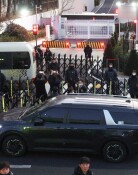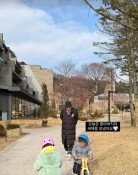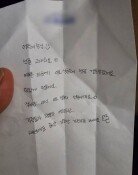Pro-Roh Moo-hyun Revival?
The June 2 local elections will pit forces supporting the Lee Myung-bak government and those loyal to the late former President Roh Moo-hyun. Candidate registration ended Friday. Of 16 cities and provinces, Seoul, Busan, Daegu, Gwangju, Gyeonggi Province, Gangwon Province, South Chungcheong Province, North Gyeongsang Province, and South Gyeongsang Province will see figures supporting Roh in running for mayor or governor as opposition candidates. Accordingly, the campaign slogans of both the ruling and opposition parties reflect the confrontation between those who support Roh and those who oppose him.
After suffering defeats in the 2007 presidential election and the 2008 general elections, the main opposition Democratic Party changed its party name and came up with a new Democratic Party plan. Shortly after its defeats, the party struggled to distance itself from the outgoing Roh government, but has apparently become a pro-Roh party. When the peoples mourning and respect for the former president peaked after his suicide, the party began taking a pro-Roh stance. It was also unable to establish its own identity by failing to field candidates with vision and ability for the local elections.
The party nominated figures who seek Roh`s revival through a candidate unification process that contradicted party principles and responsible politics. Rhyu Si-min, who is the Democratic Partys candidate for Gyeonggi Province governor, once criticized the party as an anti-reform party that must disappear. By relying on pro-Roh forces, the party has shown neither the ability nor willingness to establish its own identity needed for taking power.
The ruling Grand National Party is not free from criticism, either. It gives the impression of relying on antitheses like the judgment of the failed Roh Moo-hyun government instead of presenting concrete policies to create jobs and improve the public`s livelihood. To become a genuine ruling party, it must lead the way in establishing an advanced election culture by presenting practical alternatives and future visions rather than urging a rally of anti-Roh forces or prevention of the revival of left-leaning forces.
The local elections should serve as a platform to upgrade provincial and municipal governments to suit an era when globalization and localization occur at the same time. Both the ruling and opposition parties must refrain from deceiving voters with populist policies that require more fiscal spending but worsens the peoples livelihood. They should learn a clear lesson from the fiscal crisis in southern Europe, which fell victim to populist welfare policies without considering their national budgets.
For their part, voters in Korea should not be swayed by retrogressive politics in casting their ballots. They should carefully choose candidates who will faithfully serve the people and improve public welfare and living standards.







